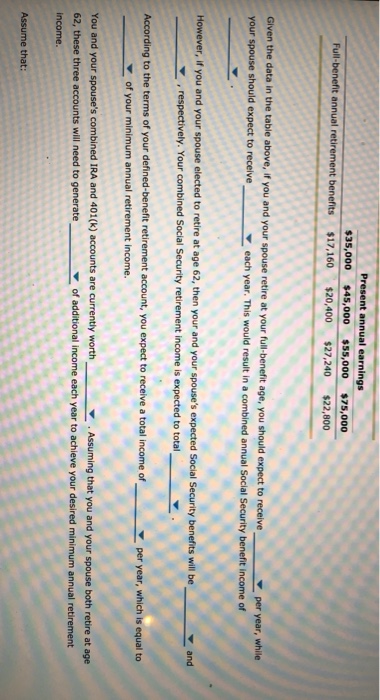Star's Financial Challenges: When Your Spouse Earns Significantly More

Table of Contents
Navigating the Power Imbalance in Financial Decisions
Unequal earning power can create a significant power imbalance in financial decision-making, leading to both emotional and practical challenges. The higher-earning spouse might inadvertently dominate financial discussions, leaving the lower-earning partner feeling powerless or dependent. This can lead to resentment, difficulty voicing concerns, and struggles with joint budgeting.
- Feeling powerless or dependent: The lower-earning spouse might feel their opinions are less valued or that they have little control over shared finances. This can erode self-esteem and create feelings of insecurity.
- Difficulty voicing financial concerns: Fear of judgment or conflict can prevent open communication about money matters. This silence can fester and lead to larger problems down the line.
- Resentment over unequal contribution: A feeling of unfairness can arise if one partner feels they are carrying a disproportionate financial burden. This can strain the relationship and create long-term conflict.
- Struggles with joint budgeting and decision-making: Disagreements on spending habits, saving goals, and financial priorities are common in couples with unequal incomes. Finding a compromise can be difficult.
- Impact on individual financial goals: One partner's financial aspirations, such as saving for a down payment on a house or investing in retirement, might be compromised due to the unequal income distribution.
Addressing Unequal Contributions and Building a Fair System
Fairness is paramount when navigating unequal income. It's crucial to establish a system that reflects both financial and non-monetary contributions. This doesn't necessarily mean splitting expenses 50/50, but rather finding a percentage-based allocation that feels equitable.
- Implementing a joint budget with transparent allocation: A clear, shared budget provides visibility into income, expenses, and savings goals. Utilize budgeting apps or spreadsheets to track spending and maintain transparency.
- Utilizing budgeting apps or spreadsheets for clarity: Tools like Mint, YNAB (You Need A Budget), or even simple spreadsheets can facilitate open communication and accountability.
- Discussing and agreeing on contribution percentages based on income and expenses: Establish a percentage-based system reflecting each partner’s income and shared expenses. This method allows for flexibility and fairness.
- Setting shared financial goals (e.g., home purchase, retirement planning): Collaborative goal-setting ensures both partners feel invested in the financial future.
- Considering non-monetary contributions (e.g., childcare, household management): Acknowledge and value contributions beyond monetary income, such as childcare, housework, or elder care. These contributions are essential and should be recognized.
Protecting Individual Financial Independence
While building a shared financial future, it's vital to maintain a degree of individual financial independence. This fosters a sense of security and self-reliance for both partners.
- Maintaining separate bank accounts for personal spending and savings: Having separate accounts allows for personal spending and independent savings goals, fostering a sense of individual control.
- Pursuing professional development and career advancement: Investing in personal and professional growth can enhance earning potential and boost confidence.
- Investing in personal financial education and planning: Understanding personal finance principles empowers individuals to make informed decisions, regardless of their partner's income.
- Establishing emergency funds and savings goals independently: Each partner should have their own emergency fund to handle unforeseen circumstances.
- Considering prenuptial agreements or legal safeguards: A prenuptial agreement can protect individual assets and provide clarity regarding financial arrangements in case of separation or divorce. This is especially important in situations of significant income disparity.
Open Communication and Professional Guidance for Star's Financial Health
Open and honest communication is the cornerstone of a successful financial partnership. Don't shy away from difficult conversations, and consider seeking professional guidance when needed.
- Regular financial discussions with open and honest communication: Schedule regular "financial date nights" to discuss budgets, goals, and any concerns.
- Seeking professional financial advice from a financial planner or therapist: A financial planner can help create a comprehensive financial plan, while a therapist can help address emotional issues related to finances.
- Understanding individual financial goals and aspirations: Knowing each other's financial dreams and priorities helps build a shared vision for the future.
- Developing a long-term financial plan together: A collaboratively developed financial plan ensures both partners are on the same page regarding long-term goals.
- Addressing underlying emotional issues related to finance: Financial issues can often mask deeper emotional issues. A therapist can help address these underlying concerns.
Conclusion
Successfully navigating the unique financial challenges that arise when one spouse earns significantly more requires proactive planning, open communication, and a willingness to address the emotional and practical aspects of unequal income. By implementing the strategies outlined in this article, couples can build a strong foundation for their shared financial future and avoid common pitfalls. Remember, prioritizing open communication and seeking professional guidance can significantly improve your financial well-being and strengthen your relationship. Don't let the complexities of "star" finances overwhelm you – take control and build a brighter financial future together!

Featured Posts
-
 I Klironomia Toy Samoy Eysevioy Pisti Ekklisia Kai Zoi Me Ton Xristo
May 19, 2025
I Klironomia Toy Samoy Eysevioy Pisti Ekklisia Kai Zoi Me Ton Xristo
May 19, 2025 -
 Expedition Odyssey Immersive Arctic Experience At Sea World Orlando
May 19, 2025
Expedition Odyssey Immersive Arctic Experience At Sea World Orlando
May 19, 2025 -
 Balmains Fall Winter 2025 2026 Collection Trends And Highlights
May 19, 2025
Balmains Fall Winter 2025 2026 Collection Trends And Highlights
May 19, 2025 -
 Indian Travel Vlogger Jyoti Malhotra Arrested On Spying Allegations
May 19, 2025
Indian Travel Vlogger Jyoti Malhotra Arrested On Spying Allegations
May 19, 2025 -
 Investing In Sustainability Funding Options For Small Businesses
May 19, 2025
Investing In Sustainability Funding Options For Small Businesses
May 19, 2025
